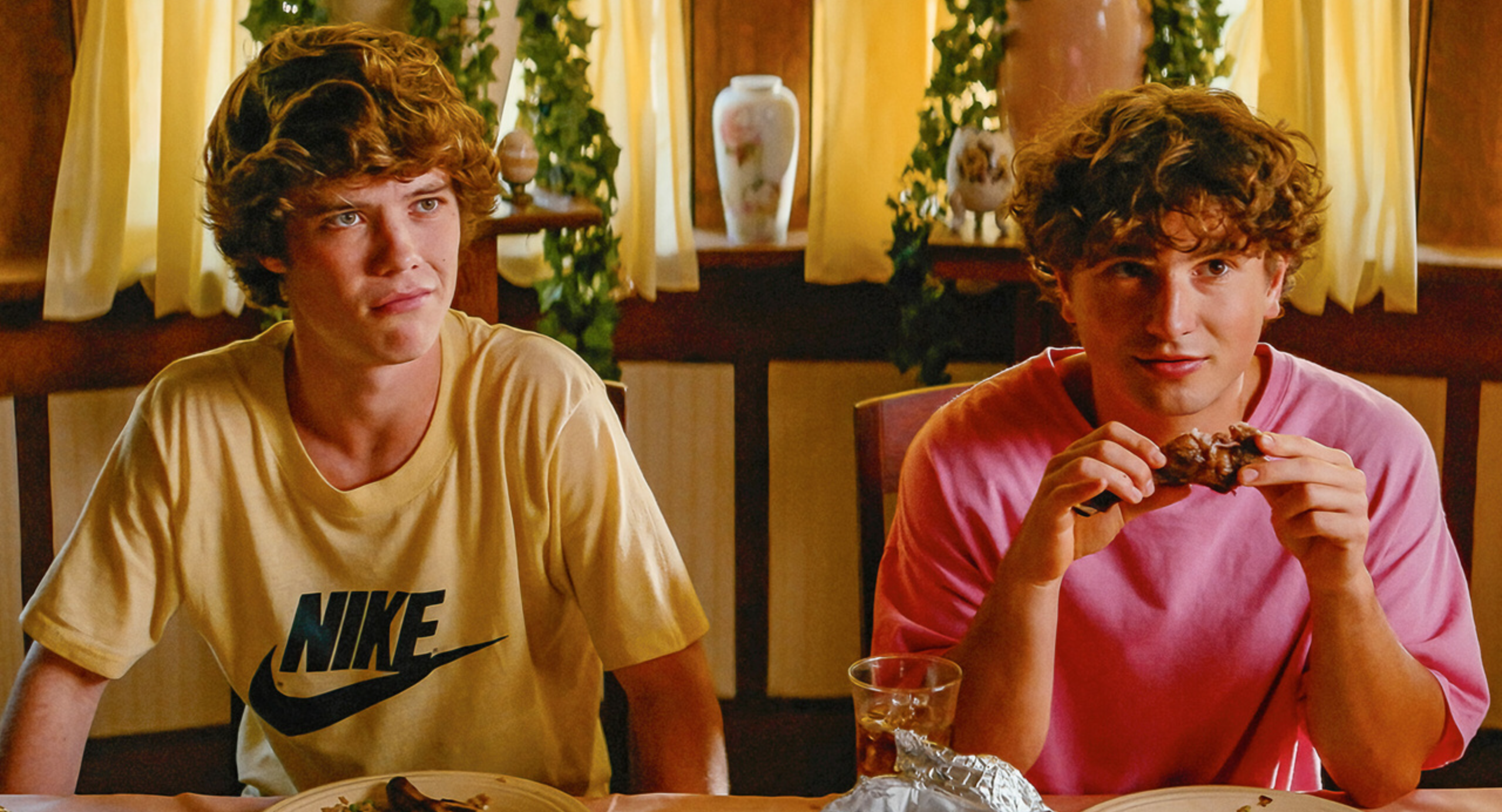Snack Shack – Film Review
Published March 11, 2024

Anyone that knows me knows that I am a huge sucker for coming-of-age movies. They’re the most comforting, joyous films that you can watch in my opinion. Sure, some of them can tackle some truly dark themes and in that case they’re not so joyous, but the magic of a great coming-of-age film makes me feel so strongly. While Adam Carter Rehmeier‘s new film Snack Shack isn’t one of the greatest of the genre, it’s still an enjoyable time that will make you eager for peaceful and relaxing summer days, and reminisce on your childhood.
It’s a film that’s teeming with the sweetness of nostalgia and the bitter pangs of growing up. Rehmeier’s film transports viewers back to the insanely vibrant era of the 1990s, particularly in a sleepy town in Nebraska City, where life’s greatest concern was the day-to-day operations of a community pool’s snack shack.
The film stars Conor Sherry and Gabriel Labelle – who portrayed Sammy Fabelman in Steven Spielberg’s semi-autobiographical film The Fabelmans – who are two teenage friends whose entrepreneurial spirit leads them to win a council auction to run the said shack. The sudden arrival of a new lifeguard, Brooke, played by Mika Abdalla, not only disrupts their business but also tests the strength of their friendship.
At its core, Snack Shack is a sweet yet somewhat unambitious homage to the coming-of-age comedies that have defined generations, most notably those that were helmed or written by John Hughes. It is a beautifully nostalgic ride that’s chalked full of youthful innocence that does a pretty good job of showing the friendship of two youngsters set against the backdrop of a bygone era. The setting of the summer of 1991 serves as a perfect canvas, painting a world untouched by the digital age, where summers felt longer and friendships felt simpler.
The performances by the cast members offer a mixture of heart and humor, grounding the film’s more whimsical moments with relatable teenage angst and joy. Sherry brings a level of earnest ambition to the character of A.J., portraying him as a young man that’s caught between his huge business aspirations and dreams and the evolving dynamics of his friendships.
LaBelle’s character Moose is the film’s comedic anchor, oftentimes delivering lines with timing that evoke genuine laughter, reminiscent of the lovable goofball that exists in mostly every friend group that we’ve had in our personal lives. Abdalla’s Brooke brings a refreshing dynamism to the narrative, challenging the status quo of the boys’ world with grace and complexity. As Brooke, Abdalla represents the unavoidable shifts that come with growing up. It’s certainly a standout performance from an actress that you should definitely be on the lookout for.
Some of the supporting cast including Gillian Vigman, David Costabile, and Love, Simon‘s Nick Robinson bring a good amount of depth to the film’s world. They skilfully bridge the gap between the adolescent and adult worlds, providing the grounding perspective that so often shapes the teenage experience. Their performances remind the audience of the larger community that these characters are a part of—a community that plays a silent, yet significant, role in the drama of growing up.
Adam Carter Rehmeier’s direction captures the essence of youth with an evident passion and tenderness. His decision to ground the film in his semi-autobiographical experiences lends an authenticity to the narrative that is both charming and effective. The setting of Nebraska City in 1991 feels like a character in its own right, depicted with a vibrancy that pays homage to the era. Rehmeier’s storytelling is at its strongest when focusing on the nuances of teenage friendship—the miscommunications, the shared dreams, and the inevitable growing apart that comes with new experiences and challenges.
However, Snack Shack is not without its pitfalls. The film often leans heavily on nostalgia, sometimes at the expense of developing a more innovative or compelling narrative. The reliance on 90s era tropes and stereotypes, while initially endearing, starts to wear thin, leading to a predictability that undercuts some of the film’s more emotional moments. Furthermore, while the film sets out to explore the dynamics of friendship, it occasionally glosses over deeper conflicts in favor of maintaining its light-hearted tone. This choice, while keeping the film accessible, sacrifices some of the complexity and depth that could have elevated the narrative.
The cinematography and soundtrack of Snack Shack are noteworthy, capturing the look and sound of the era with an almost documentary-like fidelity. The film’s visual aesthetic, with its warm hues and sun-soaked scenes, invites nostalgia, making one long for the simplicity of pre-digital summers. The soundtrack, a mix of period-specific hits and lesser-known tracks, not only enhances the setting but also serves as an emotional undercurrent, guiding the audience through the highs and lows of the characters’ journey.
Snack Shack is a film that thrives on its simplicity and the earnest performances of its cast. It’s a warm-hearted nod to the summers of our youth, to the friendships that shape us, and to the bittersweet nature of growing up. While it may not break new ground in the coming-of-age genre, it stands as a delightful reminder of the joy and pain of adolescence. Adam Carter Rehmeier’s semi-autobiographical narrative resonates with a sincerity that is both charming and effective, even if it occasionally veers into the realm of predictability. For those yearning for a slice of 90s nostalgia or a sweet, uncomplicated story of friendship and growth, Snack Shack is worth a watch.
